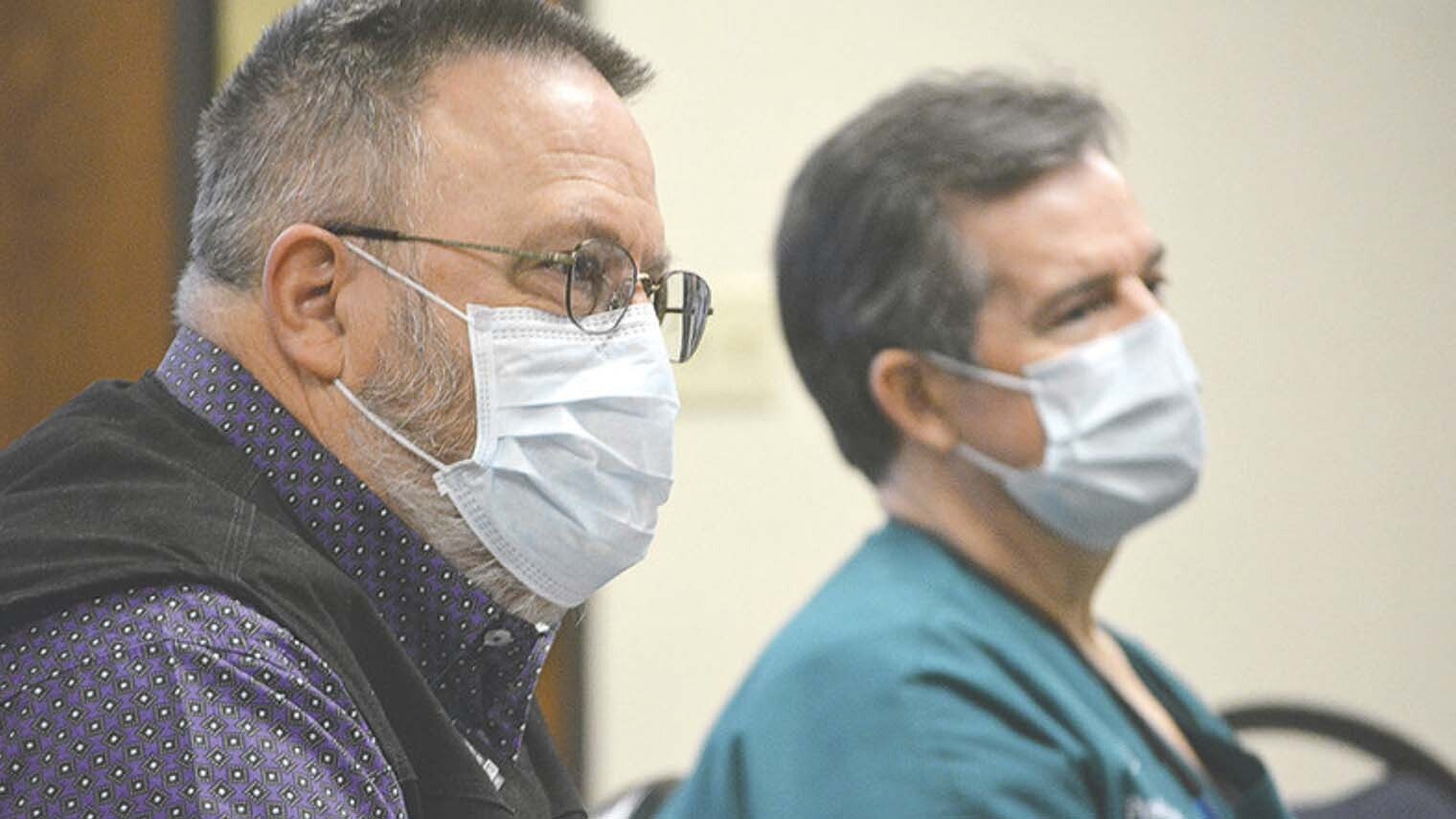With COVID cases on the rise in parts of the world, many Wyoming residents wonder what the illness holds in store for the state as 2021 comes to a close.
Public health officials throughout Wyoming have faced a huge learning curve since the pandemic began more than 18 months ago: learning how best to communicate with each other; how best to disseminate information to the public; proposing mandates, and encouraging vaccinations.
Now that the omicron variant is on the horizon, officials across the country are bracing themselves for what comes next.
Dr. Aaron Billin, Park County’s public health officer, said no one knows what’s going to happen with the omicron variant.
“In South Africa, where it first emerged, it became quickly the predominant variant,” Billin told Cowboy State Daily on Thursday, “But their severe cases did not go up. Now, their severe cases are going down and it’s still the predominant variant. So that’s why they think it is more transmissible — 70 times more transmissible than the delta variant — but it’s less severe.”
Billin pointed out that studies done on the omicron variant in the United Kingdom have provided contradictory results.
“One preliminary study suggested that it was equal in severity to the delta variant and another said it was less,” he said, adding that so far in the United States, one death has been attributed to the omicron variant.
“But it’s just so early, we’ve only known about the omicron variants for a couple of weeks,” Billin said. “So time will tell.”
On Thursday, the U.S. Food and Drug Administration authorized a new antiviral drug, molnupiravir, manufactured by Merck, for the treatment of mild-to-moderate coronavirus in adults who are at high risk of complications.
It is the second COVID-19 antiviral pill authorized just this week for people to take at home before they get sick enough to be hospitalized. On Wednesday, the FDA authorized a similar antiviral pill, Paxlovid, manufactured by Pfizer, for the same use.
“So in two days, we have two oral agents, both of them for people who have mild to moderate COVID who are at risk for developing severe disease, meaning being hospitalized or dying,” Billin said. “So this is for people 60 and over who have heart disease, hypertension, COPD, cancer, or are immunocompromised.”
Billin stressed that the new antiviral medications aren’t for everyone.
“Unfortunately, people got the idea with monoclonal antibodies, that it was for everybody,” he said. “But it was for the same group, the groups at risk, and unfortunately, we had some local medical providers who prescribed it to anybody, and then we ran low for the people at high risk.”
Billin said the new antiviral pills hold several advantages over monoclonal antibody therapy.
“Monoclonal antibodies are always a liquid infusion,” he said. “(Intravenous) medicines need special storage considerations, they expire sooner. A pill can sit on a shelf for many months to years. A pill is much more stable, it doesn’t need special handling and never needs to be refrigerated. So this is a huge breakthrough.”
Billin noted even though the new pills have been approved, they will not be immediately available.
“Pfizer hopes to have courses to treat 100,000 to 200,000 people available by the end of the year,” he said. “And then they’re going to start cranking out production throughout 2022. But everything takes time — vaccines took time, monoclonal antibodies took time.”
Billin said the Wyoming Department of Health expects to receive a shipment of the pills within weeks, and will distribute them to every county in Wyoming.
“But because we don’t have a lot of courses of treatment, they’re going to be saved for the people at highest risk,” he said. “The public needs to understand, this is not for the 20- to 50-year-old who is healthy and takes no medicines. It is not for them. It’s for people at risk.”
Billin said public health officials refuse to give up hope in their battle against the coronavirus, despite the fact the pandemic has continued since March of 2020.
“We’ve all learned that we can’t afford NOT to be hopeful, regardless of what is happening, how our lives have changed – we have to be hopeful,” he said. “And the sooner we choose to be hopeful, the better our lives will be.”





